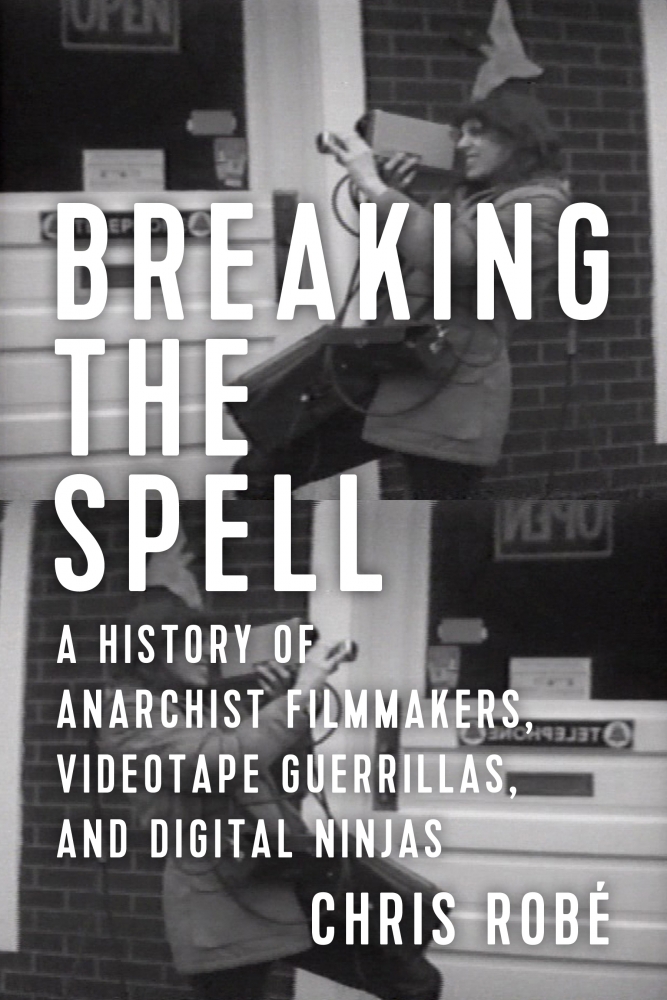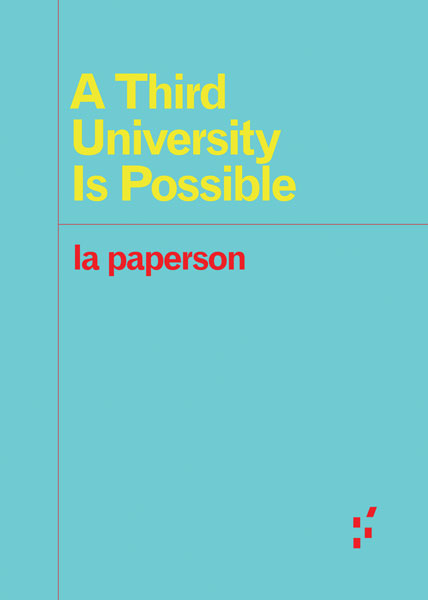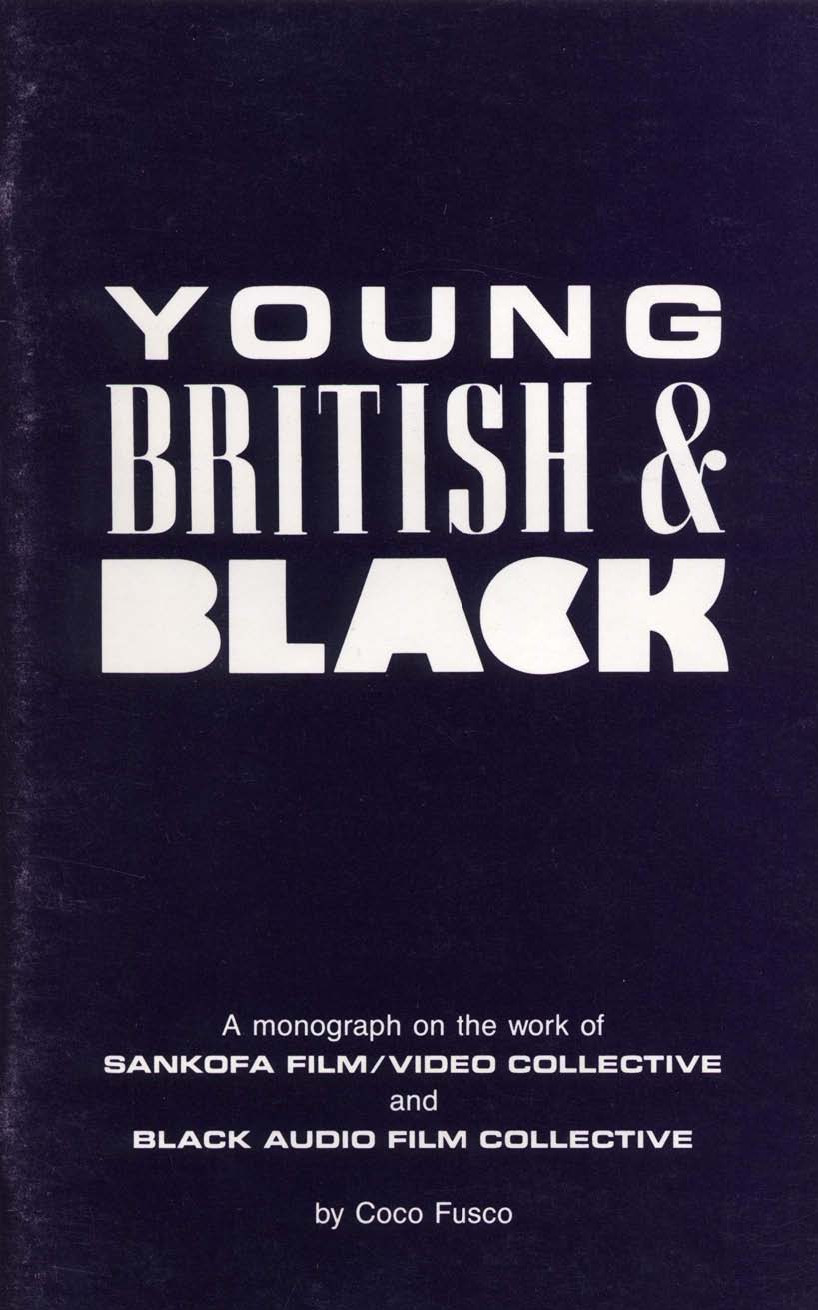Chris Robé: Breaking the Spell: A History of Anarchist Filmmakers, Videotape Guerrillas, and Digital Ninjas (2017)
Filed under book | Tags: · activism, aesthetics, aids, anarchism, autonomy, direct action, ecology, film, indigenous peoples, labour, marxism, media activism, neoliberalism, politics, protest, punk, social movements, strike, third cinema, video, video activism, video art

“Breaking the Spell offers the first full-length study that charts the historical trajectory of anarchist-inflected video activism from the late 1960s to the present. Two predominant trends emerge from this social movement-based video activism: 1) anarchist-inflected processes increasingly structure its production, distribution, and exhibition practices; and 2) video does not simply represent collective actions and events, but also serves as a form of activist practice in and of itself from the moment of recording to its later distribution and exhibition. Video plays an increasingly important role among activists in the growing global resistance against neoliberal capitalism. As various radical theorists have pointed out, subjectivity itself becomes a key terrain of struggle as capitalism increasingly structures and mines it through social media sites, cell phone technology, and new “flexible” work and living patterns. As a result, alternative media production becomes a central location where new collective forms of subjectivity can be created to challenge aspects of neoliberalism.
Chris Robé’s book fills in historical gaps by bringing to light unexplored video activist groups like the Cascadia Forest Defenders, eco-video activists from Eugene, Oregon; Mobile Voices, Latino day laborers harnessing cell phone technology to combat racism and police harassment in Los Angeles; and Outta Your Backpack Media, indigenous youth from the Southwest who use video to celebrate their culture and fight against marginalization. This groundbreaking study also deepens our understanding of more well-researched movements like AIDS video activism, Paper Tiger Television, and Indymedia by situating them within a longer history and wider context of radical video activism.”
Publisher PM Press, Oakland, CA, 2017
ISBN 9781629632339, 1629632333
x+469 pages
Interview with author: The New Architects (video, 2017, 43 min).
Reviews: Beth Geglia (Interface, 2017), Franklin Lopez (Fifth Estate, 2017), Patricia R. Zimmerman (Jump Cut, 2018), Allan Atliff (Anarchist Studies, 2017).
PDF (16 MB)
Academia.edu (author)
La Paperson: A Third University Is Possible (2017)
Filed under book | Tags: · colonialism, decolonization, film, land, third cinema, university

“A Third University is Possible unravels the intimate relationship between the more than 200 US land grant institutions, American settler colonialism, and contemporary university expansion. Author la paperson cracks open uncanny connections between Indian boarding schools, Black education, and missionary schools in Kenya; and between the Department of Homeland Security and the University of California. Central to la paperson’s discussion is the “scyborg,” a decolonizing agent of technological subversion.
Drawing parallels to Third Cinema and Black filmmaking assemblages, A Third University is Possible ultimately presents a framework for hotwiring university “machines” to the practical work of decolonization.”
Publisher University of Minnesota Press, Minneapolis, 2017
Forerunners: Ideas First series, 19
Creative Commons BY-NC-ND 4.0 License
ISBN 9781517902087, 1517902088
xxv+72 pages
HT Max Liboiron
Coco Fusco: Young, British and Black: The Work of Sankofa and Black Audio Film Collective (1988)
Filed under catalogue | Tags: · black people, documentary film, film, postcolonialism, third cinema, video

“Sankofa Film/Video Collective and Black Audio Film Collective are the most celebrated and controversial Black media groups to emerge from the British workshop movement of the 1980s. Their work focuses on the representation of the Black subject in mainstream and alternative media, also touching on such issues as institutionalized racism, sexual politics and national identity in postcolonial Britain. Challenging stylistic conventions of both documentary and fiction film, their work provides a basis for critical reflection on the history of Black film culture, Third Cinema, and their future directions.” (back cover)
Featuring essays “A Black Avant-Garde?” by Coco Fusco (originally published as “Black Filmmaking in Britain’s Workshop Sector” appearing in a 1988 issue of Afterimage Vol 14, No 7); “An Interview with Martina Attille and Isaac Julien of Sankofa Film/Video Collective,” and “An Interview with Black Audio Film Collective: John Akomfrah, Lina Gopaul, Avril Johnson and Reece Auguiste,” both interviews by Coco Fusco.
A publication designed to accompany a touring film exhibition of the same title curated by Coco Fusco and produced by Ada Gay Griffin.
Publisher Hallwalls, Contemporary Arts Center, Buffalo, NY, 1988
ISBN 0936739150, 9780936739151
65 pages
via publisher

